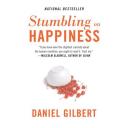This book in audio format is a good listen. Very funny and interesting on how human brain work to make us alive and happy.
1. Human brain tends to take snapshot of our memory – a bad “wizard.” We fill in the gaps to make things seem continuous. Our perception of happiness or unhappiness may depend on a lot of factors.
2. We have an emotional circuit breaker that allows to take on traumatic experience more readily than things that don’t trigger the circuit breakers. For example, a wife can forgive the spouse sexual transgression but cannot tolerate or forgive the husbands’ not taking out the garbage last week.
3. Happiness is rarely as good as we imagine it to be, and rarely lasts as long as we think it will. The same mistaken expectations apply to unhappiness.
4. People do a poor job of predicting how they will feel because they focus on a given theme without consideration for others. We may as well ask people’s experience than to predict it ourselves.
5. This book doesn’t give you some magic pill on becoming a happy person, but it may give you some insight into how your mind processes your self talk.
6. Happiness is a state of mind that are very subjective and dependent on what you’re comparing to. Our mind doesn’t work well in isolation. Experiencing shorting electrical shocks after some long ones are better than all long shocks.
7. Because of how our minds work, pleasing people or making people happy may be more of playing tricks on one’s mind than really doing good things for that person.
8. For a people manager, making an employee happy may take a very different strategy. This may sound like a deception but it’s no more guilty than our brains.
9. Writing personal journal has a way to capture one’s state of mind that’s not altered by the brain’s filling the gap. This is a good way to assess one’s happiness in retrospect.

